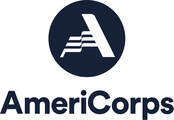SPECIFICATIONS FOR LOCAL WORKSHOPS/DEMONSTATIONS:
Proposal Application Requirements: Professionals interested in providing preservation training for either of the above formats should submit a proposal including:
Presenter fees, when paid, will be negotiated on a case by case basis. No separate travel expenses will be paid. Presenter fees may be offered to speakers if funds are available – as well as if, per SHPO grant requirements, those presenters meet the Secretary of the Interior’s Professional Qualifications Standards found in 36 CFR 61. (For information on 36 CFR 61 standards, see https://www.nps.gov/history/local-law/arch_stnds_9.htm.) Some presenters not meeting the requirements in 36 CFR 61 may also be paid fees, and PAWV will make this determination as funds are available. Proposals are due via email to Danielle Parker at [email protected] on Friday June 5, 2020 This RFP does not indicate any promise to follow through and implement any proposals. We reserve the right to select different trainers for workshops, sessions, etc. We reserve the right to accept late proposals if insufficient or inadequate proposals for all slots are not received by the deadline. We may suggest revisions to your proposals for your consideration. PAWV staff will organize and direct all activities and will have final approval of content. This conference receives Federal funds from the National Park Service as administered by the West Virginia Department of Arts, Culture, and History. Regulations of the U.S. Department of the Interior strictly prohibit unlawful discrimination departmental Federally Assisted Programs on the basis of race, color, national origin, age, or handicap. Any person who believes he or she has been discriminated against in any program, activity, or facility operated by a recipient of Federal assistance should write to: Office of Equal Opportunity, U. S. Department of the Interior, National Park Service, 1849 C Street, N.W., Washington, D.C. 20240.
1 Comment
The mission of the West Virginia Association of Museums is to serve, educate, advocate for, and enhance communications within the museum community. By listening to its members, serving their interests, and keeping members abreast of current national standards and activities, WVAM works to benefit institutions, professionals, volunteers, and others interested in the museums of the Mountain State.
The theme of our 2018 conference is “Building A Museum Community: A Capital Idea!” We continue to hear from our members that we need to strengthen and grow the relationships between our state’s museums, cultural heritage and art organizations, and the people that are associated with them. From state agencies to consultants, conservators to artists, professionals to students, and volunteers to donors - if we work together, network, and share information, just think of how much we can accomplish! We are now accepting proposals for papers, presentations, workshops, exhibits, and poster sessions addressing our theme, “Building A Museum Community – A Capital Idea!”. As always, we are also accepting sessions which focus on collections care and management, interpretation, non-profit management, grant writing, exhibit design, fundraising, and emergency preparedness - as well as proposals which address materials conservation, history, and preservation-related issues. We especially encourage hands-on sessions that will teach our members new skills. Don’t worry if your idea does not fit into one of the categories above (there is only so much room in this paragraph!) Just reach out to us if you have any questions or ideas about a topic. You can email the conference committee at [email protected] or talk to Bekah Karelis at 304-830-3485. The deadline for submission of proposals is October 15, 2017. Contact the PAWV to take advantage of a special offer for a nonprofit fundraising workshop at the PAWV Conference. This offer is available to the first 4 nonprofits to register with dlapresta@pawv.org.
On Thursday, September 22, at the PAWV Conference in Beverly, PAWV will offer a full-day fundraising coaching workshop with consultant, Beth Raps. This workshop is outcome-focused: not just quick money (although that will be one result) but a loyal donor base ensuring long-lasting money for the long haul, mirroring the long-term nature of preservation. The workshop teaches how to ask for funds but doesn’t start there. It starts rather with what we already have: a strong feeling for “our” place. It teaches us how to use that to invite support year-round through a planned approach combining a variety of types of fundraising, from crowdfunding and memberships to events and large donor cultivation and solicitation, emphasizing the three Rs of long-lasting fund development: relationship-building, record-keeping, and recognition. For $200, your organization can send three participants to the workshop and have a 30-minute one-on-one coaching session with Beth Raps either Thursdayevening or Friday morning of the conference. It is recommended to send a team to this workshop and coaching session as you’ll be working on your own fundraising plan. This offer is available to the first 4 nonprofits to register with dlapresta@pawv.org. You can learn more about Beth and her business, RAISING CLARITY at http://www.raisingclarity.com/ To learn more about the conference and other available sessions, visit http://pawv.org/2016-conference.htm. This offer is first come, first serve. Tickets are on sale at the Eventbrite page: https://www.eventbrite.com/e/this-place-matters-connecting-with-historic-places-tickets-26139243180
PAWV is excited to announce three featured speakers for the up-coming historic preservation conference, “This Place Matters”. Tom Mayes (National Trust for Historic Preservation), Daniel Carey (Historic Savannah Foundation), and Dr. John Ochsendorf(Massachusetts Institute of Technology) will be the plenary and keynotes presenters over the three-day period. Each speaker will present on a different topic focused on why historic places are important and how to save them. Tom Mayes, the Vice President and Senior Counsel for the National Trust for Historic Preservation, will be the opening plenary speaker on Friday, September 23. He will speak immediately following lunch and will kick off the main educational concurrent sessions of the conference by presenting on “Why Old Places Matter”. Mr. Mayes will answer the questions: Why do old places matter? What difference does it make if we do – or do not – save old places? What difference does it make in people’s lives? He will explore some of the many reasons that old places matter to people, including Continuity, Memory, Individual and Civic Identity, Beauty, History, Architecture, Sacredness, Creativity, Sustainability, Community and Economics. Old places matter – perhaps for more reasons – and more fundamentally — than we think. Daniel Carey, the President & CEO of the Historic Savannah Foundation (HSF), will be the keynote speaker at the 8th Annual Historic Preservation Awards at Halliehurst Mansion in Elkins. Mr. Carey’s presentation is entitled “Secrets of Preserving a City” and will be based on his experiences with HSF over the last 7 years. He will convey the need for balance between tourism and preservation while touching upon the value of heritage tourism, the competitiveness of historic buildings in terms of energy efficiency, and collaborations HSF enjoys with non-traditional partners in Savannah – arguably the largest urban National Historic Landmark district in the United States. Dr. John Ochsendorf is Professor of Civil Engineering and Architecture at the Massachusetts Institute of Technology, where he directs a research program in historic masonry structures. Dr. Ochsendorf will be the keynote speaker for the luncheon on Saturday, September 24, to be held in Beverly’s historic I.O.O.F. building. His presentation is entitled “Preserving Historic Structures: Challenges and Opportunities” in which he will discuss how the preservation of the cultural heritage of West Virginia is vital for the future. Within his presentation he will explain how the field of preservation straddles the “two cultures” of the sciences and the humanities and therefore demands a deep engagement with both the technical and the cultural aspects of the built environment. We are very honored to have all three presenters speak at the conference this year. For more information about the conference, check out the event page: http://pawv.org/2016-conference.htm Plan your trip to the conference, September 22-24, 2016. Reserve your room in the conference room block at the Iron Road Inn – a locally-owned hotel in Elkins. The rate is $75.00/night+tax, and the room block is available beginning September 21 through September 23. Be sure to state you are with the group “Preservation Alliance of West Virginia.” The phone number for the Iron Road Inn is 304-637-1888. The website is ironroadinn.com This conference is being financed in part with Federal funds from the National Park Service, Department of the Interior. Regulations of the U.S. Department of the Interior strictly prohibit unlawful discrimination in departmental Federally Assisted Programs on the basis of race, color, national origin, age or handicap. Any person who believes he or she has been discriminated against in any program, activity, or facility operated by a recipient of Federal assistance should write to: Chief, Office of Equal Opportunity Programs United States Department of the Interior National Park Service 1201 Eye Street, NW (2740) Washington, DC 20005 This is a reminder that proposals for the PAWV 2016 Conference are due April 25. Here is the full request for proposals.
Preservation Alliance of West Virginia is currently accepting proposals for its next statewide historic preservation conference, scheduled for September 22-24, 2016. It will be held primarily in Beverly, with some opportunity for programming in the immediate Randolph County vicinity (Elkins, etc.). This year’s conference theme will be This Place Matters: Connecting with Historic Places. Conference proposals should relate to the theme and fit into at least one of three tracks:
This is a request for knowledgeable professionals willing to lead one or more of the following: Keynote speeches Plenary speeches Half- or full-day workshops Educational walking or driving tours Educational sessions Round-table discussions Panel presentations Student/AmeriCorps poster session For more information on each of these positions, necessary qualifications, and applications, please see the guidelines below. Here is a downloadable version of the PAWV conference RFP 2016 Submit proposals via email to [email protected] by April 25, 2016. For more information, please contact PAWV’s Executive Director, Danielle LaPresta Parker, at [email protected] or 304-345-6005. This RFP does not indicate any promise to follow through and implement any proposals. We reserve the right to select different trainers for workshops, sessions, etc. We reserve the right to accept late proposals if insufficient or inadequate proposals for all slots are not received by the deadline. We may suggest revisions to your proposals for your consideration. PAWV staff will organize and direct all events and will have final approval of content. This conference will be funded in part with federal funds from the National Park Service, Department of the Interior and the WV Division of Culture & History, State Historic Preservation Office. Regulations of the U.S. Department of the Interior strictly prohibit unlawful discrimination in departmental Federally Assisted Programs on the basis of race, color, national origin, age or handicap. Any person who believes he or she has been discriminated against in any program, activity, or facility operated by a recipient of Federal assistance should write to: Office of Equal Opportunity, National Park Service, 1201 Eye Street, NW (2740), Washington, DC 20005. Proposal Application Requirements: Professionals interested in providing preservation training for any of the above formats — speeches, workshops, keynote speakers, educational sessions, roundtables, panel discussions, poster sessions, and/or educational tours — should submit a proposal including:
Presenters will be offered free admission to the conference for the day (excluding banquet) of their presentation, plus the volunteer-discount rate to attend the rest of the conference. Presenter fees, when paid, will be negotiated on a case by case basis. Presenter fees may be offered to major speakers, with smaller amounts offered to panel participants and additional presenters if funds are available. No separate travel expenses will be paid. Positions Available: Plenary and keynote speakers We are seeking one plenary speaker and two keynote speakers for the following: A 15-30 minute plenary speech on local history or preservation – or on one of the conference themes/tracks – for an opening session directly following Friday’s lunch; A 30-45 minute keynote speech related to the conference theme or one of the conference theme/tracks for the awards banquet on Friday evening; A 30-45 minute keynote speech related to the conference theme or one of the conference theme/tracks for the luncheon on Saturday afternoon. Workshop leader Trades workshops are best held at a historic property, with hands-on work performed on the property as part of the workshop. Some workshops may include a classroom component or may be intensive training on a focused topic. Occasionally, other formats – such as a longer training period, or combining multiple skills in one workshop – may be offered. These workshops can be either a half or a full day. Trainers should have extensive experience in the specific skill, thorough familiarity with historic preservation issues regarding that skill, and experience in teaching the skill. Trainers are encouraged to bring additional hand tools for students’ use for hands-on practice. Seminar, panel, or round-table type workshops related to one of the tracks could also be considered for workshop topics or presentations more appropriate to a longer format than the 75 minute educational sessions. Educational speakers Educational speakers will lead 75 minute sessions related to one of the tracks. Each session will most likely be held in an educational breakout room at a specific site. Conference participants will have the option of attending various sessions throughout the three-day period. Speakers should have extensive experience in the specific topic, thorough familiarity with historic preservation issues regarding that topic, and/or experience in teaching the topic. Round-table leaders The round-table discussions, which should be related to one of the tracks, will be 75 minutes long and will be located in a specific educational breakout room. Leaders of round-table discussions must have widespread knowledge and experience working with the specific topic. Leaders will be available to discuss and answer questions asked by conference participants regarding the discussion topic, as well as to encourage constructive input and sharing of experiences by the participants. Panel presenters and moderators The leaders/moderators of panels related to one of the tracks will assemble 2 or 3 panel presenters to each give a short presentation related to the same theme, followed by discussion led by the moderator. The names, contact information, and qualifications of each panel participant should be included in the proposal. Panels last 75 minutes and will be held in a specific educational breakout room. Tour guides (walking or driving) Walking tours generally run from 1 ½ to 3 hours. Driving tours may be a half-day or longer. Guides must have pervasive knowledge of the historic structures and properties described on the tour. PAWV requests that tour guides be knowledgeable not only in the historic uses of the buildings, but also in the methods, strategies, and/or technologies used during the preservation, adaptive reuse, etc., of the structures/sites. The primary focus of the tour should be related to historic preservation, the conference theme, and/or one of the conference tracks; however, PAWV encourages tours to also share aspects of local history. Poster session The poster session will include the presentation of research or a historic preservation project by an individual (typically a student or AmeriCorps member) or by representatives of a project team. Posters will be displayed in an exhibitor hall, and presenters will accompany their posters – illustrating their research methods or project scope and outcomes. The posters will be displayed during the entire conference, but the poster presentation session will be held over a period of one hour on Friday or Saturday of the conference. Three Conference Tracks: Conference attendees can choose to attend workshops and educational sessions related to three conference tracks, which focus on specific themes common in historic preservation projects and development. By featuring three different tracks, conference attendees can choose the topic that best reflects their interests and gain the most from their experience. Attendees will have the choice of Thursday workshops and tours reflective of track themes, as well as Friday and Saturday concurrent educational sessions. Proposals should be related to one of the following tracks.
Preservation Alliance of West Virginia is currently accepting proposals for its next statewide historic preservation conference, scheduled for September 22-24, 2016. It will be held primarily in Beverly, with some opportunity for programming in the immediate Randolph County vicinity (Elkins, etc.). This year’s conference theme will be This Place Matters: Connecting with Historic Places. Conference proposals should relate to the theme and fit into at least one of three tracks:
This is a request for knowledgeable professionals willing to lead one or more of the following:
For more information on each of these positions, necessary qualifications, and applications, please see the guidelines below. Here is a downloadable version of the PAWV conference RFP 2016 Submit proposals via email to [email protected] by April 25, 2016. For more information, please contact PAWV’s Executive Director, Danielle LaPresta Parker, at [email protected] or 304-345-6005. This RFP does not indicate any promise to follow through and implement any proposals. We reserve the right to select different trainers for workshops, sessions, etc. We reserve the right to accept late proposals if insufficient or inadequate proposals for all slots are not received by the deadline. We may suggest revisions to your proposals for your consideration. PAWV staff will organize and direct all events and will have final approval of content. This conference will be funded in part with federal funds from the National Park Service, Department of the Interior and the WV Division of Culture & History, State Historic Preservation Office. Regulations of the U.S. Department of the Interior strictly prohibit unlawful discrimination in departmental Federally Assisted Programs on the basis of race, color, national origin, age or handicap. Any person who believes he or she has been discriminated against in any program, activity, or facility operated by a recipient of Federal assistance should write to: Office of Equal Opportunity, National Park Service, 1849 C Street, NW, Washington, DC 20240. Proposal Application Requirements: Professionals interested in providing preservation training for any of the above formats — speeches, workshops, keynote speakers, educational sessions, roundtables, panel discussions, poster sessions, and/or educational tours — should submit a proposal including:
Presenters will be offered free admission to the conference for the day (excluding banquet) of their presentation, plus the volunteer-discount rate to attend the rest of the conference. Presenter fees, when paid, will be negotiated on a case by case basis. Presenter fees may be offered to major speakers, with smaller amounts offered to panel participants and additional presenters if funds are available. No separate travel expenses will be paid. Positions Available:
We are seeking one plenary speaker and two keynote speakers for the following:
Trades workshops are best held at a historic property, with hands-on work performed on the property as part of the workshop. Some workshops may include a classroom component or may be intensive training on a focused topic. Occasionally, other formats – such as a longer training period, or combining multiple skills in one workshop – may be offered. These workshops can be either a half or a full day. Trainers should have extensive experience in the specific skill, thorough familiarity with historic preservation issues regarding that skill, and experience in teaching the skill. Trainers are encouraged to bring additional hand tools for students’ use for hands-on practice. Seminar, panel, or round-table type workshops related to one of the tracks could also be considered for workshop topics or presentations more appropriate to a longer format than the 75 minute educational sessions.
Three Conference Tracks: Conference attendees can choose to attend workshops and educational sessions related to three conference tracks, which focus on specific themes common in historic preservation projects and development. By featuring three different tracks, conference attendees can choose the topic that best reflects their interests and gain the most from their experience. Attendees will have the choice of Thursday workshops and tours reflective of track themes, as well as Friday and Saturday concurrent educational sessions. Proposals should be related to one of the following tracks.
Statewide Historic Preservation Conference:
“This Place Matters – Connecting with Historic Places” This three-day biennial conference will be held primarily in Beverly, with some programming in the immediate Randolph County vicinity. PAWV is excited to be in Beverly for the upcoming conference. Beverly dates back to the Revolutionary War period and is one of the first settlements west of the Allegheny Mountains. By the time the crucial Civil War battles were fought nearby in 1861, Beverly was an established county seat and crossroads. The rise of nearby Elkins at the end of the 19th century left Beverly to be largely unaffected by later development. Participants will have a chance to tour and learn intimate details about preservation successes in Beverly. The 8th Annual Historic Preservation Awards Banquet will be on Friday, the 23rd, and will be held at Halliehurst Mansion (a National Historic Landmark) in Elkins. PAWV is currently accepting session proposals for the conference. Contact [email protected] for a copy of the conference request for proposals. The due date for submissions is March 25, 2016.
On the first day of the conference, I attended the Historic Gravestone Conservation Workshop at Spring Hill Cemetery in Huntington. Jonathan Appell, a historic stone conservator, led a group through several different hands-on techniques for cleaning gravestones and monuments; resetting and leveling leaning gravestones; and conservation, or repair, of broken gravestones. This in-depth session allowed for more than just a speaker presenting his ideas and techniques – we were able to participate and get our hands dirty. Our group cleaned four gravestones during the morning session, removing moss and lichens from the bases and focusing on making the inscriptions more visible and readable. In the afternoon, our group worked on four other gravestones. Each one presented a different challenge toward conservation and repair. We reattached a top portion of a grave marker that had been laying on the ground; we leveled a leaning gravestone; we adhered a large head stone with its base to eliminate the possibility of it falling over; and we used a tripod and hoist to lift and reset large and heavy segments of the final grave marker.
By Robert My name is Robert Wolfe and I am currently finishing my MA in public history from West Virginia University. Starting in December I will begin serving at Main Street Fairmont in Fairmont, West Virginia. Given my educational background in historic preservation and public interpretation, along with my interest in adaptive land reuse, a Main Street program is an ideal place for me to undertake a service position. Throughout my education I have had the privilege of working for a number of institutions including; George Washington’s Mount Vernon, the Pendleton Historic Foundation, and the Heritage Trail Conservancy of Madison Indiana. I know my time at Main Street Fairmont will be equally as rewarding. Since finishing my Undergraduate Degree I have been fascinated with discovering new ways to utilize our heritage. Like many people in the field of public history, I believe there is an excess of historic house museums. Too many stories competing for a limited audience is creating a strain on budgets. While it would be nice if house museums could sustain themselves on admissions alone, it simply is not feasible in the 21st century. Historic houses need to gather new audiences so that we all may retain our cultural heritage. Just because a building is old, doesn’t mean it must be a museum! The workshop “Charetting the Jenkins House” at the Preservation Alliance of West Virginia 2014 Conference, was a natural workshop to attend. The Jenkins House (Green Bottom) is an 1825 plantation house on the Ohio River. The home, currently owned and mothballed by the U.S. Army Corps of Engineers, has been meticulously restored to its appearance in 1825. The Jenkins House operated as a house museum for a time. During this period the house would host Civil War encampments and special holiday events. The Jenkins House currently awaits a new use.
The charette was a refreshing change in house museum narratives. Local historical societies typically receive the unfair stereotype of being inflexible in their beliefs. The stakeholders of the Jenkins House were interested in restoring the old museum events but also interested in expanding the scope of activities at the site. The site has an excellent view of natural wetlands and ample space for people. The natural beauty lends itself to its use as an event space. Other options discussed include a community garden, a historic gardening site, or community space for local events. As a government property, the Corps of Engineers is responsible for upkeep and bills for the Jenkins House. The Jenkins House is in an advantageous position to experiment with new uses. This gives the property an advantage, allowing the stakeholders to put more resources into developing alternative uses for the property. Charettes are just one example of how historic preservationists can interact with the local community to preserve local heritage. The PAWV Conference allowed me to get hands on experience on the benefits and uses of charettes. Classroom experience can never equal field experience.
|
News and NotesCategories
All
Archives
May 2024
Subscribe to our mailing list to receive e-news updates on historic preservation news and events in West Virginia.
|
Get Involved |
Programs |
Contact UsPreservation Alliance of West Virginia
421 Davis Avenue, #4 | Elkins, WV 26241 Email: [email protected] Phone: 304-345-6005 |
Organizational Partners:
© COPYRIGHT 2022 - PRESERVATION ALLIANCE OF WEST VIRGINIA. ALL RIGHTS RESERVED.

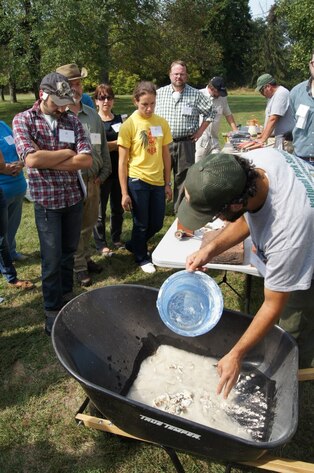
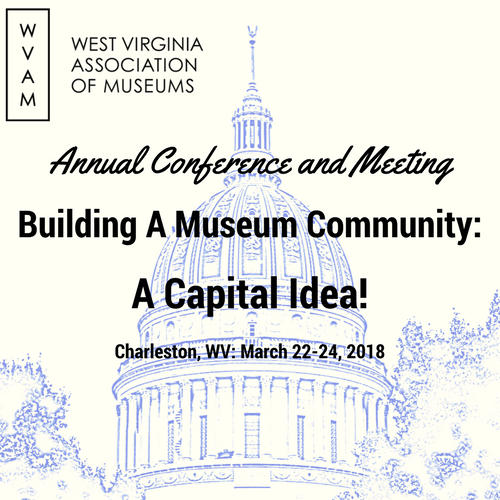
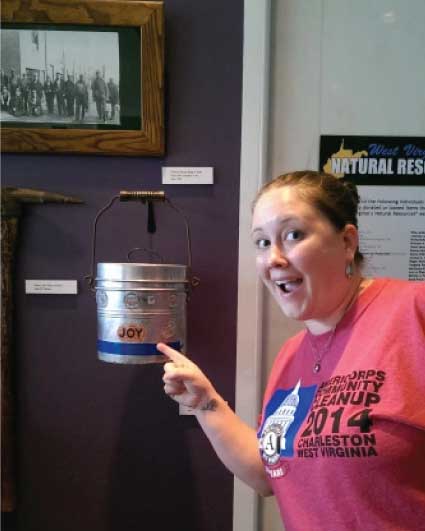
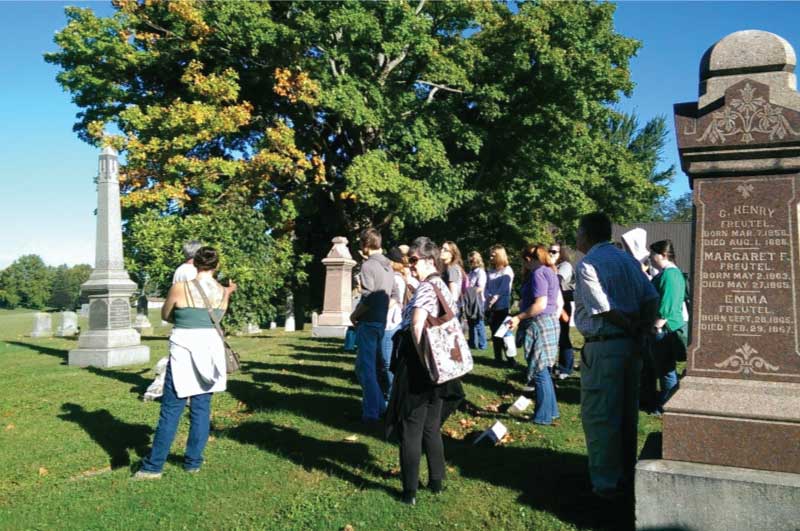
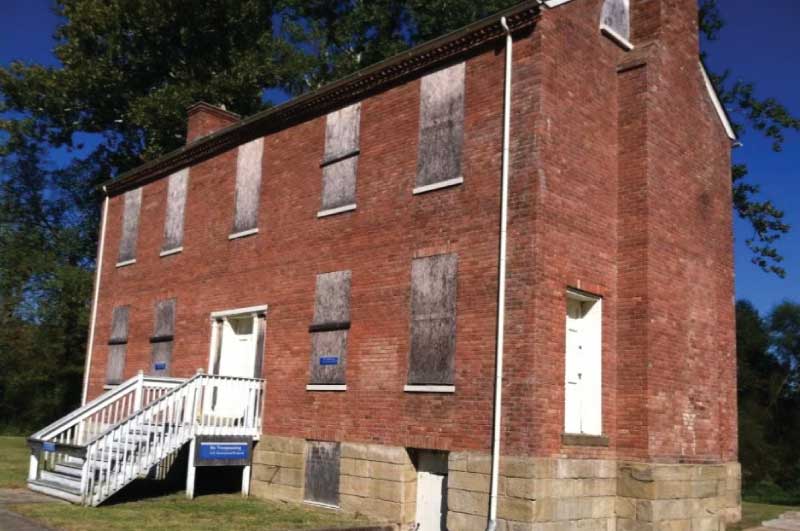
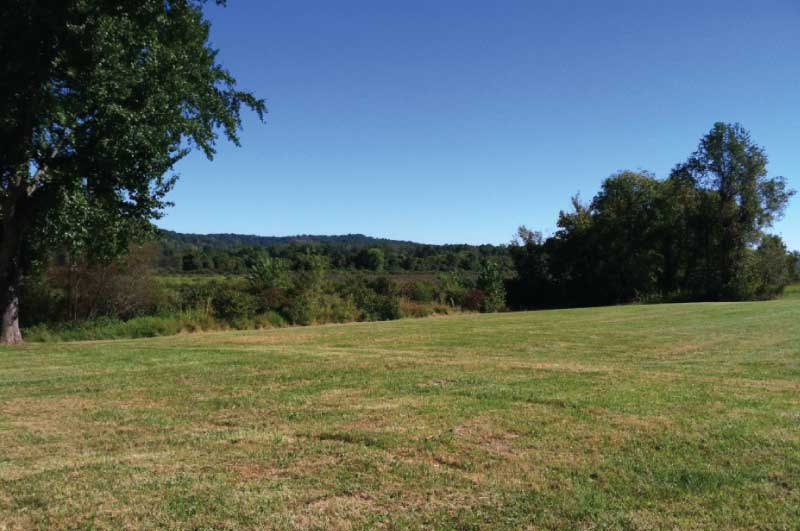
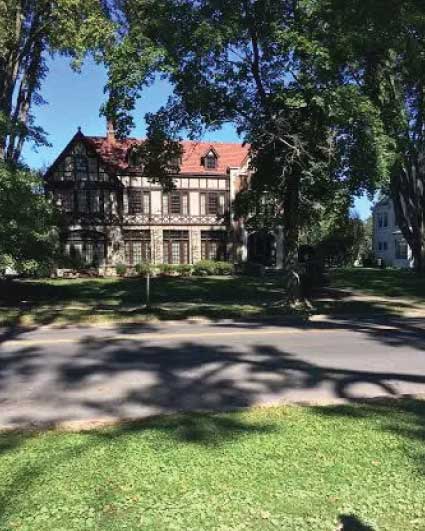
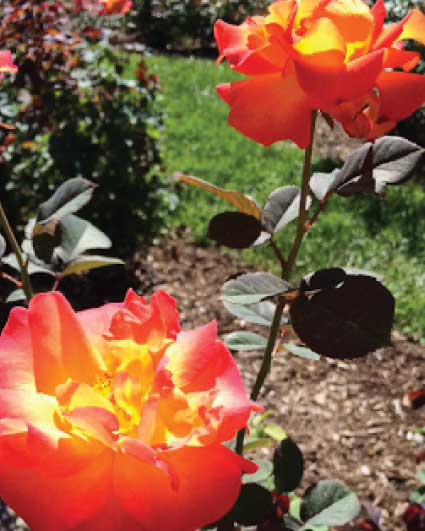
 RSS Feed
RSS Feed

